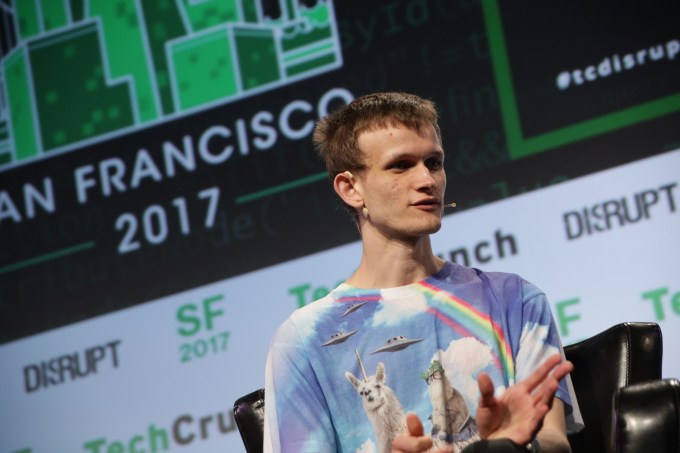The crypto industry is often criticized from the outline for creating wealth that exists only in digital form, is unstable and driven by greed. That’s why a new charity initiative from top figures inside the Ethereum community might make a few non-believers sit up for a moment.
GiveDirectly, a charity that provides no-strings-attached grants to the world’s “extreme poor,” has revealed it has received a $1 million donation from OmiseGo, a fintech startup that held a $25 million ICO last year to develop a decentralized payment network, and Ethereum creator Vitalik Buterin.
The donation will go towards a GiveDirectly campaign in Uganda aimed at providing more than 12,000 refugee households with a grant to change their life by enabling business growth and other opportunities fueled by investment.
An initial pilot project reached 4,400 households (covering an estimated 21,500 individuals) with $650 which the recipient can choose to use in any way they wish. GiveDirectly said it is “looking to scale significantly over the next year” on the back of this new donation and others.
GiveDirectly is backed by a range of well-known tech names including Google, eBay founder Pierre Omidyar, and Facebook co-founders Dustin Moskovitz and Chris Hughes. The company opened its donation drive to the public in 2013, and since then it has raised over $200 million. Now it is looking to work more closely with the crypto industry, both in terms of high-profile figures and crypto enthusiasts themselves who can take part in the Uganda campaign by donating to the charity’s crypto wallet directly.
“This is a major new chapter for us, entering the humanitarian space with a service to give money directly to refugees,” GiveDirectly’s head of communications Catherine Diao told TechCrunch. “We’re really excited to be working with leaders in the crypto community to translate some of the recent boon to impact for some of the poorest people in the world.”
To clarify, recipients of the donations themselves won’t receive crypto, instead, it is switched to local currency and transferred either using mobile money services or a traditional bank transfer. But some of the principles behind cryptocurrencies themselves do apply to GiveDirectly.
The charity aims to offer a more efficient model that lets recipients receive a larger chunk of donations than regular charities (it claims to be at 85 percent), while it carries out thorough checks on recipients before they receive the money and documents how they spend the capital, too. A ‘live feed’ tracking how the donations are impacting recipients is here.
“While cash transfers have been used in humanitarian contexts before, this initiative is a significant departure from the status quo because we’re giving families transformative amounts of money versus small, subsistence amounts,” Diao explained.

Ethereum founder Vitalik Buterin made the donation to GiveDirectly alongside OmiseGo
“The crypto economy has grown immensely over the last year, bringing a great deal of wealth to many people and organizations within the ecosystem. In part we simply see an exciting opportunity to share that wealth. We hope the fortunes made in the crypto space will lead not to extravagant lifestyles but to extravagant generosity,” Jun Hasegawa, CEO of Omise — OmiseGo’s parent company — wrote in a blog post.
Anyone wanting to take part can send ETH or other ERC-20 token donations to the GiveDirectly wallet: 0xc7464dbcA260A8faF033460622B23467Df5AEA42
(It looks like the big donation hasn’t come just yet, fwiw)
Separately, OmiseGo said it will explore the opportunity to include GiveDirectly on the decentralized payment that it is developing. Called the OMG network, it is planned to allow transactions between any individual in the world, be that consumer or store, instantly and without the payment fees that exist today.
“We have a strong desire to support GiveDirectly’s unconditional cash transfers on the OMG Network in the future when it becomes possible,” Althea Allen, ecosystem growth lead at OmiseGO, told TechCrunch.
